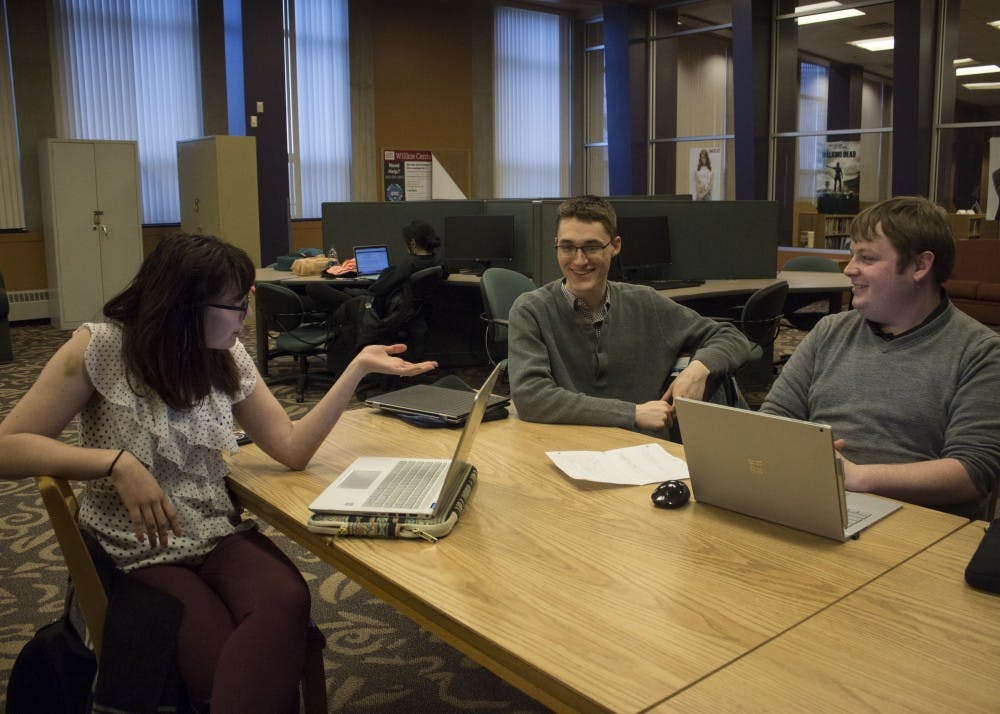The IU Residence Hall Association has established a forum for students to share feedback on residence halls.
“Students, a lot of times, have very strong opinions about where they’re living,” said Zoie Hancock, vice president of student advocacy for RHA. “At least they should, for how much they’re paying.”
RHA serves as an intermediary between students’ concerns and administrators.
In an effort to hear more feedback directly from students, RHA had its first town hall last month and its second Monday night.
Hancock said the organization will continue to have town halls on the first Monday of every month until the residence halls function so smoothly that feedback is no longer needed.
Unless there are major national or campuswide events, such as natural disasters or policy changes, the town halls do not have a set topic.
Rather, they serve as a means for students to voice whatever concerns they have about day-to-day residential life.
“We need to have a pre-set system for feedback before crisis occurs,” said Mason Walther, vice president of internal affairs. “That’s when you can really get the magic to happen.”
Three students attended the first town hall. No students attended the second — and last — town hall of the semester Monday in Willkie Quad.
At the March town hall, Hancock said students expressed concerns about the new residence hall proposed for the field behind McNutt Quad, where people traditionally tailgate. Hancock said students worried the building would share parking with McNutt and Briscoe Quads, forcing 2,000 students to share one parking lot. Students said this could potentially cause limits on freshman parking or increases to costs for parking permits.
RHA’s members attend meetings and are in constant contact with administrators to ensure residential decisions reflect students’ needs.
The organization is comprised of an executive branch overseeing campuswide issues, ten area-specific committees and Center Presidents for each of IU’s 14 residence halls.
While town halls are new to the executive branch, they have already been successful among center governments.
Earlier this year, the Wells Quad Center President led a town hall allowing students to voice problems associated with moving into a dorm still under construction.
Town halls in Collins Center and Eigenmann Hall have achieved changes in the menu and structure of the dining systems there.
Walther said much of RHA’s work happens behind the scenes, at meetings with administrators.
“It’s invisible, if we do it right,” Walther said.
Along with the monthly town halls, RHA has an advocacy request form through which students can identify any campus issues they’d like to see addressed by administration. If the concern falls outside RHA’s jurisdiction, executives pass the notes to Union Board, IU Student Association or another appropriate student group.
Students can also e-mail the executive members or visit the RHA website to share their questions or concerns.
RHA President Dakota Coates said he has the e-mails of all IU administrators, and immediately contacts the appropriate staff member as soon as he receives a student e-mail.
“A lot of students underestimate the things they have the ability to change,” Hancock said, “just by speaking out.”



